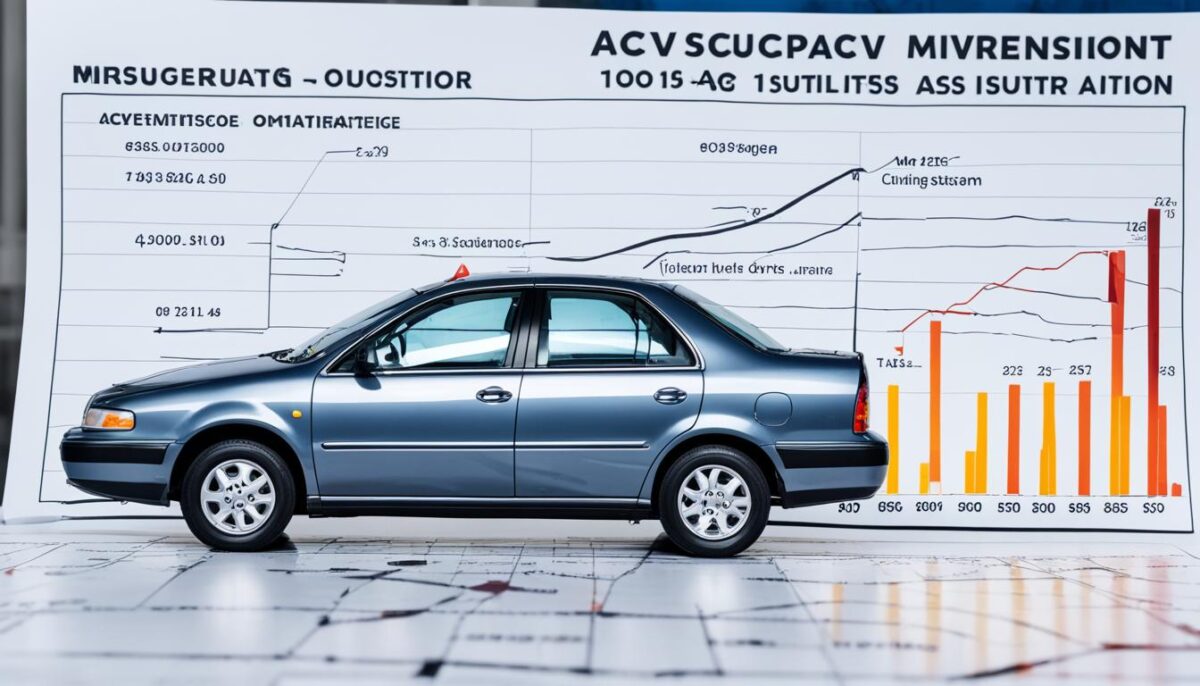In the world of car auctions, there is a term that is crucial for both buyers and sellers to understand – ACV, or Average Commercial Value. This metric plays a significant role in determining the valuation of vehicles being auctioned, and it’s essential to grasp its meaning and implications. In this article, we’ll dive into the definition of ACV and explore how it impacts the car auction process.
Understanding the Term “ACV” in Car Auctions
In the dynamic world of car auctions, the term “ACV” holds significant importance for both buyers and sellers. ACV, which stands for Average Commercial Value, is a crucial metric used to determine the fair market value of a vehicle. This value is calculated based on a comprehensive analysis of various factors, including the vehicle’s make, model, year, mileage, condition, and market demand.
Definition and Significance of ACV
The ACV reflects the average price that a dealer or wholesaler would be willing to pay for a particular vehicle at auction. This value serves as a benchmark, guiding both buyers and sellers in making informed decisions and negotiating fair prices. By understanding the definition of ACV and its significance in car auctions, participants can navigate the market more effectively and ensure they are getting the best possible deal.
The importance of ACV cannot be overstated. It provides a standardized and objective way to assess the value of a vehicle, allowing buyers to make more informed purchasing decisions and sellers to price their vehicles competitively. This understanding of ACV in vehicle valuation is crucial for successful participation in the car auction industry.
| Factors Affecting ACV | Impact on ACV |
|---|---|
| Vehicle Make and Model | Higher demand for popular and sought-after models can increase ACV |
| Vehicle Year and Mileage | Newer vehicles with lower mileage typically have a higher ACV |
| Vehicle Condition | Vehicles in better physical and mechanical condition command a higher ACV |
| Market Demand | Changing market trends and consumer preferences can affect the ACV of a vehicle |
By understanding the definition of ACV and the factors that influence it, participants in the car auction industry can make more informed decisions, leading to successful transactions and profitable outcomes.

“Knowing the ACV of a vehicle is crucial for making informed decisions in the car auction market. It provides a reliable benchmark for pricing and negotiating, ensuring fair and transparent transactions.”
Acv Mean Car Auction: Factors Affecting ACV Value
When it comes to car auctions, the Actual Cash Value (ACV) of a vehicle is a crucial factor that influences the bidding and final sale price. Understanding the variables that determine ACV is essential for both buyers and sellers to make informed decisions. Let’s explore the key factors that can affect the ACV of a car at auction.
The make, model, and year of the vehicle are primary drivers of ACV. Newer, more popular models with lower mileage typically command higher ACVs, as they are in greater demand. Additionally, the overall condition of the car, including its maintenance history and any damage or repairs, can significantly impact its ACV.
Regional market conditions and economic factors also play a role in determining ACV. In areas with high demand for used vehicles, ACVs may be higher, while regions with lower demand or economic challenges may see lower ACV values. The supply of similar vehicles available at the auction can also influence the ACV, as a limited supply can drive up prices.
Lastly, the specific options and features of the vehicle can sway its ACV. Cars with desirable add-ons, such as advanced safety features, premium audio systems, or luxury amenities, tend to have higher ACVs compared to more basic models.
| Factor | Impact on ACV |
|---|---|
| Vehicle Make, Model, and Year | Newer, popular models with lower mileage typically have higher ACVs. |
| Vehicle Condition | Well-maintained vehicles in good condition command higher ACVs. |
| Regional Market Demand | Areas with high demand for used vehicles often have higher ACVs. |
| Vehicle Options and Features | Vehicles with desirable add-ons tend to have higher ACVs. |
By understanding these factors that influence ACV, both buyers and sellers can make more informed decisions when participating in car auctions, ultimately leading to more successful and satisfying transactions.
“Accurately assessing the ACV of a vehicle is crucial for both buyers and sellers to ensure a fair and successful auction experience.”

How ACV Impacts Bidding Strategies
At car auctions, the Actual Cash Value (ACV) of a vehicle is a critical factor in determining the bidding strategies of both buyers and sellers. Buyers often use the ACV as a starting point to determine their maximum bid, ensuring they don’t overpay for a vehicle. Sellers, on the other hand, may set their reserve price (the minimum price they’re willing to accept) based on the ACV, aiming to achieve the best possible return on their investment.
By understanding the ACV and how it influences the bidding process, participants in car auctions can make more informed decisions and increase their chances of success, whether they’re buying or selling vehicles. Buyers can use the ACV to establish a realistic price range and avoid getting caught up in bidding wars, while sellers can use it to set a fair reserve price that aligns with the market value of their vehicle.
Ultimately, the ACV plays a crucial role in the success of car auctions, as it helps both buyers and sellers make informed decisions that can ultimately lead to a more efficient and profitable transaction for all parties involved. By staying informed about the ACV and incorporating it into their bidding strategies, participants can navigate the auction process with greater confidence and achieve their desired outcomes.




